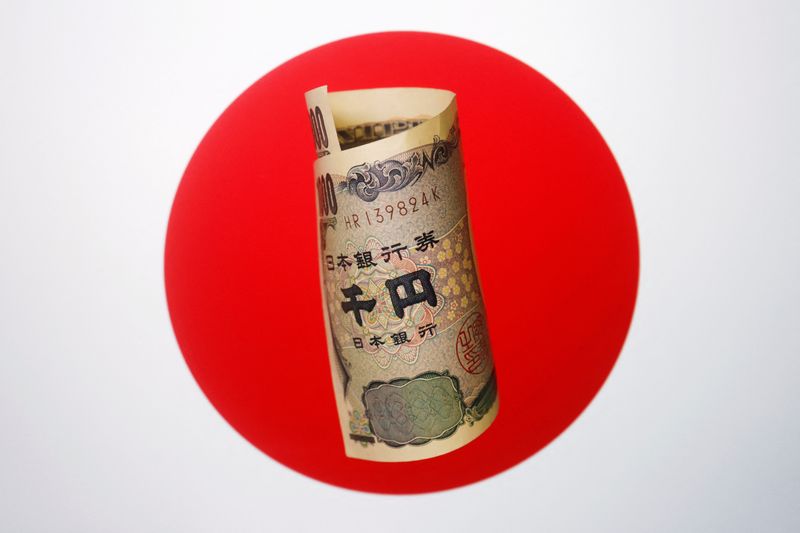By Tetsushi Kajimoto and Mariko Katsumura
TOKYO (Reuters) -Japan's policymakers continued to warn investors on Wednesday against selling the yen, as the dollar rose to a fresh 24-year high on the Japanese currency while hurdles to directly intervene remain high.
The U.S. currency rose to 146.35 yen, a level not seen since August 1998 during the Asian financial crisis, moving above levels that triggered intervention by Japanese authorities last month to stem excessive yen weakening.
Currency intervention is costly and could fail to influence the yen's value in the huge global foreign exchange market. Investors also doubt the efficacy of intervention given that the dollar's strength has been driven by interest rate differentials due to widely divergent U.S. and Japanese monetary policy.
The yen was trading around 146.20 to the dollar on Wednesday afternoon as traders braced for U.S. inflation data and its implications on future U.S. rate hikes.
"We are closely watching foreign exchange moves with a high sense of urgency, and ready to take appropriate steps on excess moves," Chief Cabinet Secretary Hirokazu Matsuno told reporters.
The comment came after Finance Minister Shunichi Suzuki was quoted by Jiji Press as saying there was no change in the country's stance that it would take necessary steps in the foreign exchange market as needed.
"What was important was the speed of forex moves," not any levels, when deciding on any need to take action, Jiji quoted Suzuki as saying as he was traveling to Washington to attend a gathering of financial leaders from the Group of 20 major economies.
Market players were closely watching how Suzuki might seek backing from other countries at the G20 meeting, after he said Japan won understanding "to a certain extent" from the United States on its recent foray in the market.
Analysts say Japan may face difficulty winning backing for intervention unless volatility becomes highly excessive.
"Japanese authorities may continue verbal intervention but when it comes to actual action, intervention cannot be justified except smoothing operations aimed at curbing excess volatility," said Yasunari Ueno, chief market economist at Mizuho Securities. "Otherwise, you cannot win understanding from other countries."
Japanese officials have repeatedly stressed the importance of seeking U.S. understanding, which is seen as lending them legitimacy for any intervention involving the dollar. Investors see solo action by Japan being far less effective than concerted intervention.
Last month, Japanese authorities sold dollars and bought yen in a market intervention for the first time since 1998, spending 2.8 trillion yen ($19.2 billion) to slow a rapid slide in the yen that was considered a threat to the economy.

As for dollar-buying, yen-selling intervention, Japan has stayed out of the market since 2011 when the devastating earthquake and tsunami triggered the worst nuclear disaster in Fukushima since Chernobyl.
($1 = 146.2100 yen)